Opinion
Ostriches on the runway
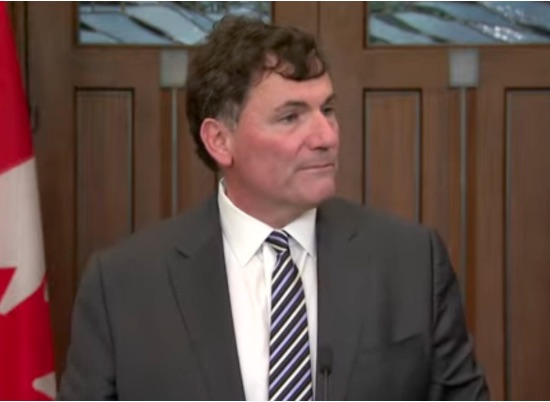
|
|
Dominic LeBlanc says it’s time to rise above partisanship. Watch the skies
“The protection of our democracy demands that we rise above partisanship,” Dominic LeBlanc told reporters Saturday morning in the lobby of the West Block’s backup House of Commons. “Canada isn’t the only country facing the threat of foreign interference. Many of our allies are, even now, having discussions on ways to protect their democracies against this scourge. If they can have reasoned and constructive discussions on this subject, Canada should be able to do the same. That’s why the prime minister tasked me [on Friday] with consulting, over the coming days, experts, legal scholars and opposition parties on what the next steps should look like — and determine who best may be suited to lead this public work.”
You can tell the Trudeau government is really badly rattled when it starts doing what it should have done in the first place. “Consulting experts, legal scholars and opposition parties” was an option in March, when Trudeau decided instead to lay the foundation for Friday’s debacle. Talking to people — in the old-fashioned sense of (a) showing the slightest interest in what they have to say and (b) allowing it to inflect your actions in any perceptible way — is always an option. Nor is it in any danger of getting worn out through overuse, where this government is concerned.
Paul Wells is a reader-supported publication. To receive new posts and support my work, consider becoming a free or paid subscriber.
“It’s our government’s hope that the opposition parties will treat this issue with the seriousness it deserves,” said LeBlanc, whose boss ignored a string of reports from the National Security and Intelligence Committee of Parliamentarians and whose early-warning system for news of Beijing’s intimidation against a sitting MP was named Fife and Chase.
LeBlanc opened the floor to questions. The first: Shouldn’t there be a public inquiry? “A public inquiry has never been off the table,” he said. “All options remain on the table.” This was change masquerading as continuity. Johnston took a public inquiry off the table three weeks ago. Trudeau accepted the un-tabling. By putting it back on the table, LeBlanc was bowing to what may be the inevitable conclusion of the last few days: that the opposition parties, by adapting a common line in favour of a full inquiry, may have made one inevitable.
Another characteristic of this government is that it views its tribulations as tests of other people. The short odyssey of David Johnston, in other words, is a learning opportunity for us all. “My job,” LeBlanc said, “is to, in the very next few days, in short order, ask opposition leaders to take this matter seriously. Not just to simply say, ‘Oh, there has to be a public inquiry.’ OK: Make suggestions about who could lead this public inquiry. What would the terms of reference be? What do they see as the timelines? How do they deal with the obvious challenge of respecting Canadian law that protects some of the most sensitive intelligence information?”
I should say I take LeBlanc at his word when he claims to be seeking input in good faith. As a general rule, his arrival tends to mark an improvement in this government’s handling of a difficult file. But just to be on the safe side, it’s worth saying some obvious things clearly.
The opposition parties should give input when asked. It’s useful for each of them to go through the exercise of conceiving in detail the proper handling of the election-interference file. And it’s good of the government to ask, albeit way later than it should have.
But everything LeBlanc plans to ask them — whether to have an inquiry, who should lead it, its mandate and deadlines and legal justification — remains the responsibility of the government. If the opposition parties chicken out, or play dumb games, or deadlock, or suggest people who decline to participate, the responsibility for designing a workable policy remains the government’s. I’m pretty sure Trudeau volunteered for the job of prime minister. In fact I’m sure there was something in the papers about it. He is in this fix now because he wanted Johnston to make his decisions for him. As I wrote nearly three months ago.
Thank you for reading Paul Wells. This post is public so feel free to share it.
LeBlanc kept saying an inquiry should be run by someone “eminent.” I mean…sure? Whatever? I suppose eminence shouldn’t be actively disqualifying, at least. But to me the craving for eminence is a strange instinct. Eminence is distinctly relative: I suspect more than half of Canadians could never, at any point, have told you who David Johnston is, or Julie Payette, or Craig Kielburger. I’ve come to suspect that “eminent” translates as “impressive to Katie Telford,” which is fine but, again, an odd criterion. Instead may I propose “competent”?
When I wrote about Johnston’s appointment in March, I a suggested a few alternative candidates for the job of deciding how to respond to the mandate for which I already thought Johnston was ill-suited. My list was concocted at random on a few minutes’ notice, with varying degrees of enthusiasm, purely for illustrative purposes. I could come up with a dozen other names, and I don’t even know what I’m talking about. If I were burdened in LeBlanc’s place with such a task, I’d begin by asking for a list of associate deputy ministers at the departments of Global Affairs and Justice, as well as a list of currently serving and recently retired ambassadors. Probably the guy who used to be the national director of the Liberal Party of Canada would be a bad idea, I guess I need to add.
I also might do some reading. I’d recall that when the lawyer Kenneth Feinberg was brought in to decide compensation for families of the 9/11 victims in the U.S., he couldn’t have been further from a household name. When James B. Donovan got Francis Gary Powers released by the Soviets, or Jean Monnet invented the European Union, or Elissa Golberg became Canada’s first civilian representative in Kandahar, they weren’t household names. They still aren’t. They were just good at their work. You know that uncomfortable suspicion that Canada is just six pals from the McGill alumni club who gather every Friday to carve up the spoils of elite consensus over pitchers of iced tea on the verandah of the Royal Ottawa Golf Club? The first step toward perpetuating that suspicion is the urge to find “eminent” people for technical work.
The title of today’s post is cryptic. When LeBlanc said our democracy depends on rising above partisanship, I thought, Uh-oh, and I started thinking about objects or creatures that don’t normally rise above much. Which led to a mental image of ostriches trying to fly. I actually have seen non-partisanship, many times, including from some of the most partisan operators in Canadian politics. But I still wouldn’t bet on it happening in any particular case. The incentives run all the other way. To insulate against it, politicians might want to read the latest from Alliance Canada Hong Kong, the diaspora group that has been chronicling foreign interference for years, for whom the issue is not a fun partisan football and the prospect of testifying yet again, to educate some eminent commissioner, is not appealing.
I keep saying the under-served constituency in this country is the people who would like to see serious problems treated seriously. Not in the sense of cheap theatrics — furrowed brows, jabby index fingers, “my time is limited” — but in the sense of, you know, seriousness. It feels cheap to lodge such a complaint. It’s too easy, too timeless. OK, smartass, what are you proposing? I dunno, more, uh…. seriousness, I guess. But I think everyone senses it.
Last September, the CBC’s Aaron Wherry reported, Justin Trudeau told his caucus “to focus on four Cs: competence, confidence, contrast and campaign-readiness (in that order).” I’m left wondering how the prime minister defines competence and how he thinks he’s doing. This is a guy who, when he made those remarks, was less than a year past deciding that the biggest problem with his cabinet was that Marc Garneau was in it.
Meanwhile, I checked with Pierre Poilievre’s Twitter account to see whether he had responded to LeBlanc’s overture. Here’s how the Conservative leader spent his Friday afternoon:
I sometimes wonder whether these people know we can see them. It’s time to rise above partisanship. Flap, you big gorgeous birds! Flap!
For the full experience, upgrade your subscription to Paul Wells.
National
Liberals push to lower voting age to 16 in federal elections

From LifeSiteNews
Liberals in Canada, led by MP Nathaniel Erskine-Smith, are petitioning to lower the federal voting age to 16, arguing that ‘informed’ youth should have a voice in elections.
Liberals are petitioning for high schoolers to be allowed to vote in federal elections.
In a July petition introduced to the House of Commons by Liberal MP Nathaniel Erskine-Smith, Liberals are pushing for the voting age for federal elections to be reduced from 18 years old to 16 years old, arguing that youth need a voice in society.
“Sixteen and seventeen-year-olds across Canada are already taking on real responsibilities, from working part-time jobs and paying taxes, to driving, volunteering, and taking on family responsibilities,” the petition stated.
“Young Canadians are informed, thoughtful, and actively involved in their schools, communities, and movements that shape our country’s future,” it continued.
“Extending the voting age to 16 would empower a new generation to participate in democracy while still in school, where habits of civic engagement are more easily built and supported,” the petition declared.
Interestingly, the Liberals’ push to decrease the voting age in Canada comes at a time when young Canadians are increasingly voting Conservative.
In 2015, former Prime Minister Justin Trudeau was wildly popular with Canadian youth, receiving the majority of the young vote and visiting high schools across the country.
However, in the 2025 election, young Canadians favored the Conservative party, which received 41 percent of the votes from Canadians aged 18-34, while Liberals only received 37 percent from the same demographic.
The political shift is largely attributed to rising costs of living, including food and housing, under the Liberal administration.
Trudeau’s carbon tax, framed as a way to reduce carbon emissions, has cost Canadian households hundreds of dollars annually despite rebates. According to the Parliamentary Budget Officer, this year, the tax will cost the average Canadians family up to $911 more this year than they get back in rebates.
Additionally, in 2024, Food Banks Canada reported that 2 million visit food banks each month, a 90% increase from 2019.
Furthermore, directly following a report that Canada’s poverty rate increased for the first time in years due to high inflation spurred by government spending, polls showed that nearly half of Canadians are only $200 from complete financial ruin, and yet Liberals refused to change their policies.
Addictions
After eight years, Canada still lacks long-term data on safer supply
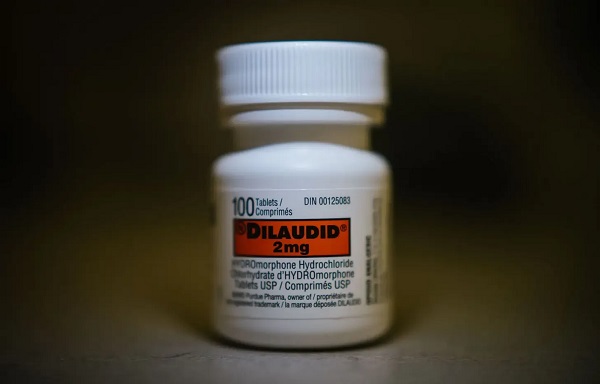
By Alexandra Keeler
Canada has spent more than $100 million on safer supply programs, but has failed to research their long-term effects
Canada lacks long-term data on safer supply programs, despite funding these programs for years.
Safer supply programs dispense pharmaceutical opioids as a replacement for toxic street drugs.
There is a growing body of research on safer supply’s short-term health effects. But there are no Canadian studies that evaluate program participants’ health impacts beyond 18 months.
The absence of research into long-term data on safer supply means policymakers do not understand how safer supply affects participants’ health, substance use or social outcomes over time.
“Long-term data is important because it helps us understand not just short-term health outcomes like reduced overdoses, but also broader impacts on quality of life, stability and health care use,” said Farihah Ali, scientific lead at the Institute for Mental Health Policy Research at CAMH. The Centre for Addiction and Mental Health is one of Canada’s leading centres for addiction research and clinical care.
Pilot projects
Canada’s first safer supply programs were introduced in Ontario in 2016. Those programs were initially small in scope, intended for a small group of high-risk individuals.
In 2020, the federal government began funding safer supply pilot programs across the country. Provinces are responsible for the delivery and regulation of these programs.
B.C. introduced provincewide programs in 2021. Other provinces, such as Alberta, have restricted safer supply access to a very small number of clinics, and have generally shifted away from harm reduction models in favour of recovery-oriented approaches.
According to the Canadian Public Health Association, an advocacy organization, the original goal for safer supply was to reduce deaths and harms associated with the unregulated toxic drug supply. It was not meant to replace addiction treatment, but to rather act as a bridge to further care.
However, a 2023 report by researchers at McMaster University and Simon Fraser University noted safer supply “does not principally operate toward goals of treatment or recovery.” The report describes safer supply instead as an emergency intervention focused on stabilization and survival.
Evidence gaps
There is a small but growing body of short-term studies on the health effects of Canada’s safer supply programs. Most only track participants’ outcomes for up to 12 months.
Some of those studies suggest safer supply may reduce the immediate harms associated with drug use.
A 2024 study found a 91 per cent reduction in the risk of death among high-risk individuals receiving safer supply in B.C. Critics have raised concerns about the study’s methodology, sample size and confounding variables.
In contrast, a March study suggested B.C.’s safer supply and decriminalization policies may be associated with increased hospitalizations. These findings also sparked controversy, with experts debating how well the data isolate causal impacts.
And a comparative study released in April also showed some positive outcomes from safer supply. It too sparked significant expert debate.
‘Arms-length’
Of all the provinces, B.C. has implemented safer supply most broadly. The province’s health ministry did not directly respond when asked about the long-term goals of its safer supply program, or whether B.C. collects longitudinal data on program participants’ health outcomes.
“Evidence shows [safer supply] helps separate people from the unregulated drug supply, manage their substance use and withdrawal symptoms with regulated medications, and helps connect them to voluntary health and social supports,” a Ministry of Health spokesperson told Canadian Affairs in an email.
The ministry did not provide the evidence it referenced.
At the federal level, Health Canada confirmed that, to date, it has funded just two evaluations of safer supply programs, despite spending more than $100 million on safer supply since April 2023.
The first was a short-term study, funded by the federal government’s Substance Use and Addictions Program program. Conducted over four months, that study assessed 10 safer supply programs in Ontario, B.C., and New Brunswick. It documented initial impacts on participants’ lives and program delivery, primarily through qualitative methods such as interviews and surveys.
The second study is an ongoing, “arms-length evaluation” of 11 safer supply pilot programs funded by the Canadian Institutes of Health Research (CIHR), Canada’s federal health research agency.
When asked about long-term research on safer supply, Health Canada referred Canadian Affairs to a 2022 funding announcement about this multi-year evaluation. While the evaluation is being conducted over several years, it is unclear if it includes long-term tracking of patients’ outcomes.
Barriers and resistance
There are a number of factors that make it challenging to evaluate safer supply programs over long periods.
Ali, of CAMH, says unstable, short-term funding can disrupt long-term research.
“When programs are shut down or scaled back, we lose contact with participants and the ability to track outcomes over time,” she said.
Program participants can also be difficult to track over long periods, she says. Many struggle with housing insecurity, health instability and criminalization.
Frontline staff also face burnout and high turnover, she says, limiting support for such research activities.
Additionally, there are tradeoffs between the anonymity needed to encourage patients to access safer supply programs and the ability to collect detailed data.
“Ethical concerns — like not wanting to burden participants or risk their safety or confidentiality — require us to design studies that are trauma-informed and flexible, which adds complexity to long-term data collection,” Ali said.
Julian Somers, a clinical psychologist and professor at Simon Fraser University, says B.C.’s failure to conduct long-term evaluations of its safer supply programs is not just an oversight, but an act of negligence.
“B.C. has some of the best pharmaceutical data systems in the world,” Somers said, referring to PharmaCare and PharmaNet — databases that capture every prescription drug transaction in the province.
Somers says his team previously used PharmaNet data to examine prescribed opioids’ effects on health and social outcomes. In 2017, he proposed a long-term safer supply evaluation using these tools.
In 2017, he proposed a long-term evaluation of B.C.’s safer supply programs.
The province declined.
According to Ali, “Future research should explore how safer supply impacts people’s long-term health, stability and connection to care.”
“We also need to listen to people’s experiences, how safer supply affects their daily lives, their sense of dignity, and their relationships with care providers through qualitative mechanisms.”
This article was produced through the Breaking Needles Fellowship Program, which provided a grant to Canadian Affairs, a digital media outlet, to fund journalism exploring addiction and crime in Canada. Articles produced through the Fellowship are co-published by Break The Needle and Canadian Affairs.
-

 Crime1 day ago
Crime1 day agoDEA Busts Canadian Narco Whose Chinese Supplier Promised to Ship 100 Kilos of Fentanyl Precursors per Month From Vancouver to Los Angeles
-
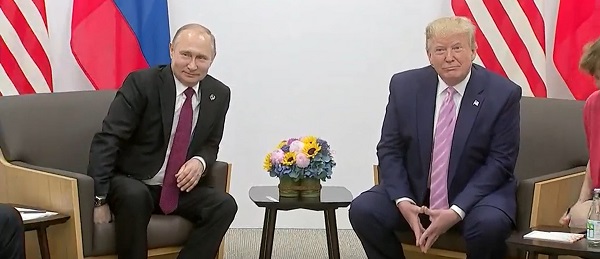
 conflict2 days ago
conflict2 days agoTrump’s done waiting: 50-day ultimatum for Putin to end Ukraine war
-
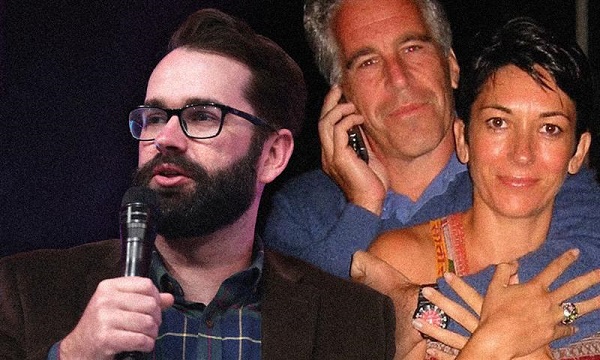
 International19 hours ago
International19 hours agoMatt Walsh slams Trump administration’s move to bury Epstein sex trafficking scandal
-

 Business6 hours ago
Business6 hours agoDemocracy Watchdog Says PM Carney’s “Ethics Screen” Actually “Hides His Participation” In Conflicted Investments
-

 Alberta1 day ago
Alberta1 day agoMedian workers in Alberta could receive 72% more under Alberta Pension Plan compared to Canada Pension Plan
-
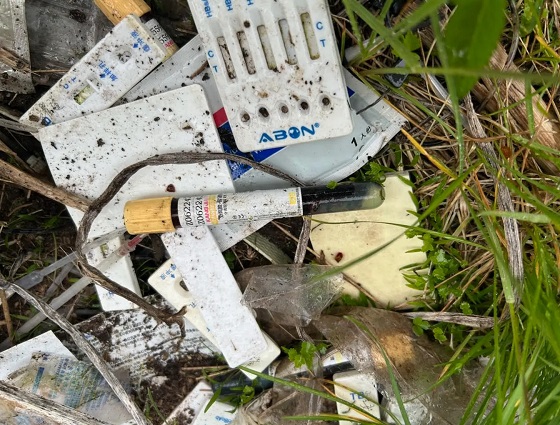
 Immigration6 hours ago
Immigration6 hours agoUnregulated medical procedures? Price Edward Islanders Want Answers After Finding Biomedical Waste From PRC-Linked Monasteries
-
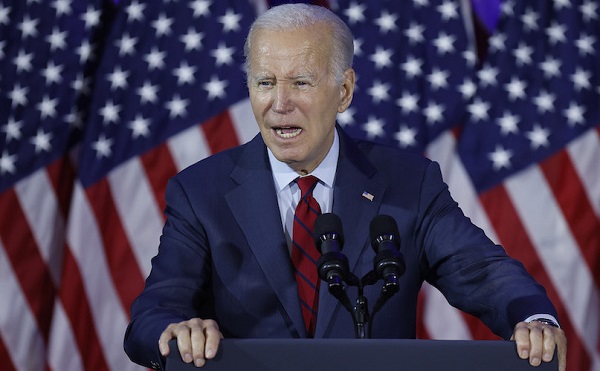
 International1 day ago
International1 day agoBiden autopen scandal: Did unelected aides commit fraud during his final days in office?
-

 National2 days ago
National2 days agoCanada’s immigration office admits it failed to check suspected terrorists’ background





